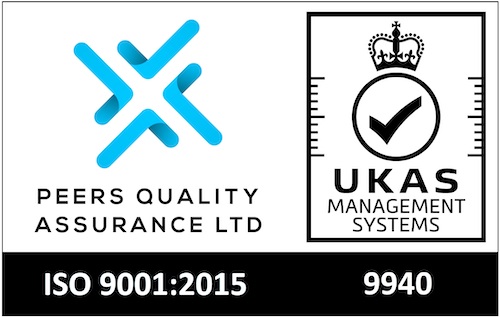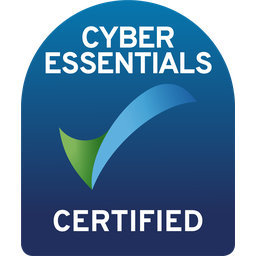Who needs a Right to Rent Check?
Right to Rent checks are a legal requirement of all tenancy agreements in England. All tenants and lodgers must undergo a Right to Rent check before they start a new tenancy agreement. The Right to Rent process was put into place to prevent people with an unverified immigration status from renting residential properties in England.
A Right to Rent check is the responsibility of the landlord, however, they may be undertaken on behalf of the landlord by a letting agency. At MyVetting.com, we understand that landlords and letting agencies need to operate at high speeds to secure tenants. Potential tenants also need a quick turnaround to secure a rental property, so our online Right to Rent checks return within hours, are affordable, easy to use and Home Office-compliant.
In England, landlords, or letting agencies on behalf of landlords, must run a Right to Rent check on:
- All tenants aged 18 or over
- Whether named on the tenancy agreement or not
- Tenants with or without a tenancy agreement
- Tenants with or without a written tenancy agreement
What is a Right to Rent Check?
Right to Rent Checks are core to the tenancy process for all people wishing to rent residential property in England. A Right to Rent check will show if you can rent a property or live in a rental property if you are over the age of 18. To have the right to rent in England, you will need to have the right to live in England.
A Right to Rent check will assess the immigration status of people over the age of 18 that wish to live in any residential rental property. A Right to Rent check must be successfully completed before the tenancy agreement starts.
International citizens may have a time limit on their permission to reside in the UK. If these instances, landlords must run another Right to Rent check either within a year of the initial check or when your visa ends – the latest date determines the time of the subsequent Right to Rent Check.
What’s included?
All MyVetting.com Right to Rent Check includes, as standard:
For Non-UK, Non-Republic of Ireland Passports, we will also need to see and process your sharecode
Renting to Lodgers
If you are currently renting out a property and wish to take a lodger, with the permission of the landlord, then it is your responsibility to check your lodger’s right to rent. In certain circumstances, your landlord may undertake the check, but a Right to Rent check must be completed for the lodger. It is advised to get this agreement documented in writing by your landlord.
Previously, Right to Rent checks have had to be carried out in person, with the tenants supplying their documentation to the landlord or letting agent. The letting agent and landlord would have to them check, copy and store the evidence according to home Office regulations.
At MyVetting.com, we’ve developed a digital solution that means we can run online Right to Rent checks. In a few clicks, landlords and letting agents send check requests straight to potential tenants’ mobile devices, for them to complete in seconds. Online Right to Rent are both as robust and fully compliant as traditional checks but quicker and more affordable.

What Do Online Right to Rent Checks mean for Landlords?
Introduced under the Immigration Act 2014, it is important for landlords to understand the implications of this act. Landlords and letting agents had been responsible for checking tenants’ paperwork in person, to understand if all tenants had the right to rent in England. With Home Office IDVT technology, the same checks must be carried out but this can happen digitally.
Landlord and letting agents’ responsibilities
The landlords or letting agents must:
- Undertake Right to Rent checks all adult tenants who will live in the property as their only or main home
- Request for tenants to evidence the original documents that show they have the right to be in the UK
- With MyVetting.com, documents are checked and verified digitally
- Check that the Right to Rent check has been certified as ‘passed’ on the MyVetting.com digital report
- Conduct follow up checks at the correct times
What happens if the follow up Right to Rent check is failed?
Failed follow up checks demonstrate an occupant in a residential rental property no longer has a valid ‘Right to Rent’. This must be reported to the Home Office by the landlord or letting agent running the check.
What documents are acceptable in a Right to Rent Check?
The documents that a tenant can have accepted as proof of their Right to Rent depend on their nationality.
British and Republic of Ireland citizens:
- Valid UK or Republic of Ireland driving licence plus original UK or Republic of Ireland birth certificate
- Valid UK or Republic of Ireland passport
All other nationalities:
- Valid EEA/Swiss national ID card. Please note, a visa or proof of settlement status granted may be required
- Combination of passport and valid visa or Biometric Residence Permit (BRP)
EEA countries are Austria, Belgium, Bulgaria, Croatia, Cyprus, Czechia, Denmark, Estonia, Finland, France, Germany, Greece, Hungary, Iceland, Ireland, Italy, Latvia, Liechtenstein, Lithuania, Luxembourg, Malta, Netherlands, Norway, Poland, Portugal, Romania, Slovakia, Slovenia, Spain and Sweden
What if I have an Expired Passport?
Expired passports are still accepted as documentary evidence for Right to Work checks.
If you do not have a passport, you may submit a Birth Certificate as evidence of the Right to Work. A Birth Certificate has no expiry date.
Simple 3 Step Process
How MyVetting.com Works
There’s no cost to register with MyVetting.com and you can reach your check dashboard in a few clicks.
When you register, you can buy Right to Rent checks through the secure Stripe payment gateway. Buy one single check or hundreds of checks in one transaction. You can send checks straightaway or send them as you need them, over a 12-month period.
When you’ve purchased your checks, you’ll arrive on your Client Dashboard where you can digitally send Right to Rent check requests to your applicants in a click. You can review the checks’ progress, buy more checks and send further checks from your dashboard with the click of a button.
As well as Right to Rent checks, we also offer online DBS checks and digital Right to Work checks.
1
Step 1
Landlord / Letting Agent – Send your Right to Rent Check request to your potential tenant
2
Step 2
Potential Tenant – Upload evidence for digital checking by Home Office
3
Step 3
Landlord / Letting Agent – Potential Tenants will share Right to Rent report with Landlord / Letting Agent
Why use MyVetting.com for Right to Rent Checks?
- Manage Your Checks – Send, track and buy checks from one central client dashboard
- Reduce Tenant Vetting Spend – Our affordable checks are carried out to Home Office standards. Our online checks reduce the resources required to complete checks, so we pass that saving on to you.
- Secure Processes – From GDPR and a secure payment gateway to Home Office IDVT technology, MyVetting.com is secure, efficient and robust.
- Customer Service – Our platform is as easy to use as 1, 2, 3 – but we still have screening experts on hand to help you when you need it.
How long do Right to Rent Checks take?
Depending on your applicants’ nationality, we could return a Right to Rent check within moments. For international passports, it may take up to 24 hours. Our systems can handle large numbers of checks at high speed at affordable costs – but we won’t ever compromise on the security and stringent nature of our checks.
What will Right to Rent results show?
The report will determine if your potential tenant has passed or failed the Right to Rent in England check.





